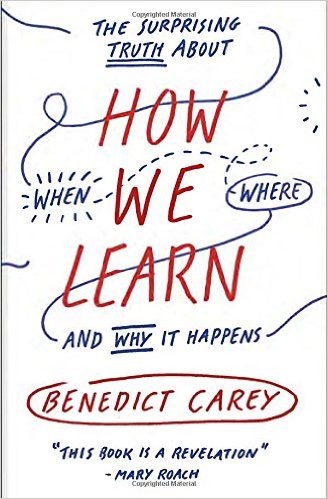Learn academic writing with AcademicHelp.net. See a lot of free writing guides and samples.

How We Learn: The Surprising Truth About When, Where, and Why It Happens by Benedict Carey summarizes research on this topic, much of which educators have yet to implement. Education’s leaders need to read this book and work to reform the system accordingly. Click the icon at the bottom of any page to get a copy for educators you know.
Benedict Carey
- Benedict is an award-winning science reporter who has been at The New York Times since 2004. He is one of the newspaper’s most emailed reporters. He has a bachelor’s degree in math from the University of Colorado, and a master’s degree in journalism from Northwestern University. He has written about health and science for twenty-five years and lives in New York City.
Introduction
- Benedict starts with his own story about how he got mostly A’s in school along with low SAT scores and couldn’t get in to any of his desired colleges. Along the way he discovered many of the techniques he covers in this book that allowed him to integrate the exotica of new subjects into daily life, in a way that makes them seep under his skin. He has mined the latest science to so how you can make learning part of living and less about isolated choice during his writing career.
1. The Biology of Memory
- Benedict starts with a simplified explanation of how the brain is structured. Thanks to the study of brain injured patients, science has developed some understanding of how the brain stores and retrieves memories. At the bottom center of the brain is the hippocampus, which is vital for the formation of memories. One type of memory called episodic is used to remember events that take place over time like the first day of high school. The other type is semantic, which deals with facts rather than experiences. When we retrieve a memory of an event, we need to reconstruct it. As a result, the story is likely to change over time as one doesn’t put the story together the same way each time. The basic plot, however, should not change much if at all. In essence, using our memory changes our memory.
- We have another kind of memory that remembers physical skills. This is called motor learning and is not dependent on the hippocampus. We also have conscious and subconscious systems and a lot goes on while we are at sleep. Thanks to surgery on patients with split brains, we know that the left side is the wordsmith while the right side is the visual expert. The left brain interprets what we experience and makes stories that we use to remember what happened. We have at least thousands of brain modules that perform skills like calculating changes in light, tone of voice, and changes in facial expression, and they all run at the same time.
DrDougGreen.com If you like the summary, buy the book





